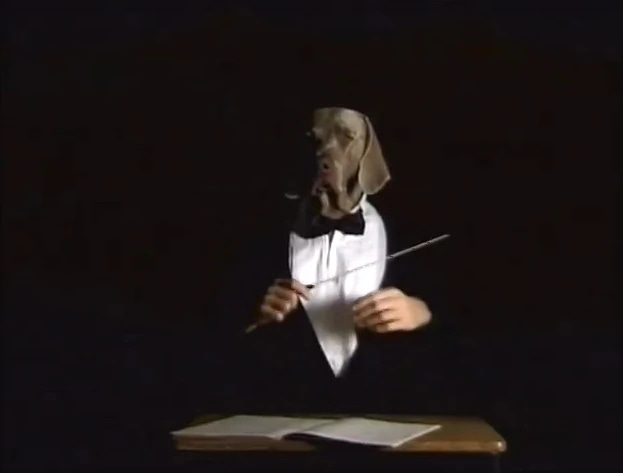Ictus
Beat Points and Balance
Derived from the latin word “icere”, which means to strike, the word ictus is the visual point where a music conductor expresses each rhythmic beat with a physical gesture. This is how an ensemble is able to play synchronously. In college, my conducting professors spent a lot of time emphasizing the importance of the ictus. Although some conductors gesticulate wildly while others prefer subtler movement, there is a fundamental method. Most often the ictus remains at roughly the same point in space, usually close to the center of the conductor’s body, at chest height. From here, the arms fly away from the body in a velocity and style dictated by the tempo and dynamics of the piece, returning again and again, over and over, until the final beat.
What is beautiful to me about the ictus is that, in and of itself, it is meaningless without motion. Without traveling away from the ictus, a conductor cannot effectively communicate the beat. It’s part of a process. How fast or slow, how delicate or violent, how big or small a conductor’s movement away from (and toward) the ictus is what elicits the many distinct colors and textures an ensemble is able to create. Music is motion and motion depends on time. The ictus is both a specific point and no point at all, only a part of the constant motion required to create sound and silence (or non-sound). Just as soon as the ictus point is reached, it is abandoned. One can’t hang on to a beat point or else there would be no beat at all.
Recently, I’ve used this ictus concept as a way of thinking about the movements of my life. I have many goals I would like to accomplish. For the sake of this metaphor, we will call these goals beat points. Some of these points are professional, others personal, others a bit of both, I suppose. Some of these points are meant to happen in the short term, others mid-to-long term. When I think of all the beats I would like to hit, there is a sense of overwhelm. It’s too big. But if I think of these beats as a series of points in time, strung together one after another, they feel more manageable. If an orchestra thought of a symphony the same way I sometimes think about my goals, they would tune their instruments, flip their sheet music to the last bar of the last movement, play the final chord, and walk off the stage; the most unfulfilling two minute concert you ever did hear. My goals aren’t places to stop, but inflection points that send me off into a new direction. My goals are my ictus points. What’s exciting about this is that each ictus point carries the exciting ability to change tempo, rhythmic meter, and style.
This metaphor also applies to the ongoing commitments in life that we abandon – such as workout routines, hobbies, healthy habits. It is easy to feel bad when we realize how many months have passed since we last reached out to a good friend, or how seldom we have called our parents, or volunteered to help anyone do anything. In these times, we pull out the word “should” and pin it to every heavy thought we have hanging from wire hangers in our brain closet.
Instead of feeling guilt and shame, we could consider simply moving back toward the ictus point. When we are lonely, it’s because the conductor in our mind has flung her arm out wide and far away from what centers us. Fortunately, her arm can only extend so far and she must return at some point. This motion back toward the beat point is when we can reach out to friends and family. Movement, either big or small, is all that needs to happen. Eventually, regardless of speed, we will hit the ictus and fly away again, this time having filled our social coffers.
This ictus metaphor offers another way to think about the concept of balance. So often, balance is talked about in a static way. Really though, balance is full of constant movement. Try balancing on one leg — it is Wobble Town if you haven’t tried it in a while. But we speak in binary terms about balance. Either we are balanced OR imbalanced. With the ictus point, I can think about balance as the constant movement that it is. Just like the ictus – the beat point – balance requires motion to and from a central point. And motion requires time. In a way, I can’t be in balance if I am not, at times, out of balance. For me, that’s a nice thought.
And the beat goes on:
Enjoy this week’s playlist from our radio show, Assisted Living, which airs live on Sunday at 6PM ET on em-radio.com





Beautiful.